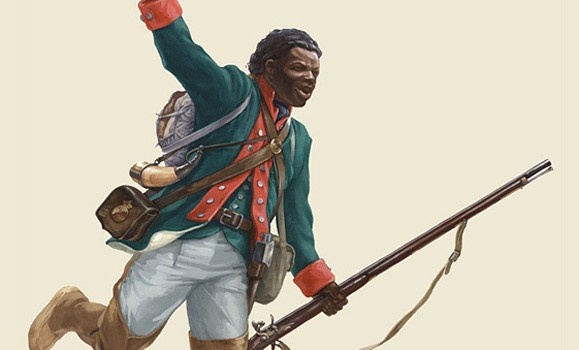Most Canadians know the story of how the colonial forces burned the White House down during the War of 1812. It’s one of our favourites, even if we don’t know all of the details. The fact that our ancestors were involved is usually enough for our Canadian pride.
Those details are important though, even 200 years later, because within the overarching narrative lives the real story of how the War of 1812 shaped our country and our culture.
Afua Cooper, Dal’s James R. Johnston Chair in Black Canadian Studies, says an entire chapter in our history is in danger of being lost.
“If we talk about how the war shaped Canada’s identity and these [Europeans] are the main people that shaped Canada’s identity, the black community and its role within that history is nowhere to be found,” she said.
Expanding the “official” story
Many black refugees came to Nova Scotia from the Chesapeake region and coastal Georgia between 1813-1816. British ships would patrol the coast where there were hundreds of plantations worked by black slaves. The British message was that anyone who would join their navy would earn their freedom. Black slaves risked everything to swim out to the British ships. Some of them served in the navy or in other military units and contributed in most of the major events of the war.
The Black Colonial Marines were part of the attacking force that burned Washington and the White House, and in Ontario there was a coloured corps that fought in several battles including the famous one at Queenston Heights with General Isaac Brock. In fact, the Americans feared them because they fought with such courage and commitment.
Not only did the exploits of black Canadians contribute to British success during the war, but the refugees who came to Nova Scotia account for the most significant African-Canadian population group in the Maritimes. Yet theirs is a story that is strangely missing from the national narrative.
“It’s so significant here in Nova Scotia, but you wouldn’t know it from reading the newspapers or listening to the commercials and advertisements that are coming out from the federal government with regard to the bicentennial,” says Dr. Cooper.
She also says this absence reinforces the idea that black Canadians are relative newcomers, starting to arrive after the Second World War perhaps, but not here taking part in these momentous events.
Perhaps the most difficult part of the story for Canadians to hear is how black Canadians were treated when they did arrive in Nova Scotia. Most of the promises made to them by the British regarding land and provisions for settlement were not kept. The land they did receive was so rocky it was nearly impossible to grow anything, and the only work available to them was harsh, physical labour. Their communities were marginalized and given no support. Dr. Cooper says it’s a miracle they survived at all.
“This uncomfortable truth doesn’t sit well with the national narrative,” says Dr. Cooper. “I have been studying black history in Canada for over 25 years now and I have come to the conclusion that it’s a truth that’s hard to bear. And what do you do with such a truth? You deny it, or you minimize it. And yet it is still with us. It won’t go away because it hasn’t been dealt with.”
Telling tales of generations past
In an effort to provide a forum for these stories and to commemorate the contribution of African-Canadians during the War of 1812, Dr. Cooper organized a workshop held at the end of November.
“I thought it would be neat to do something, especially given that both here in Nova Scotia and the Maritimes, probably the most significant group of black people who came here to Nova Scotia, came here as a result of the War of 1812.”
This workshop focused on honouring black Canadian veterans, their families, the communities they built and their efforts in helping to create a Canadian identity.
Dr. Cooper said one of the interesting things that came out of the workshop was the lack of knowledge African-Canadians themselves had as the descendants of the refugees who came here during the war and set up more than 45 or 50 black communities across the province.
“One young man came up to me and said, ‘I know my family came here as a result of the war, but I don’t know the story,’” she said. “We wonder at the lack of knowledge and how could this be? After 200 years this knowledge is lost, for one, because it is not integrated as part of the regular story.”
Dr. Cooper says these stories not only tell us where we, as Canadians came from, they provide us with a window into our modern culture.
As bruising as stories like the lost narrative of the black Canadian community are, telling them can help bring healing to those bruises.

